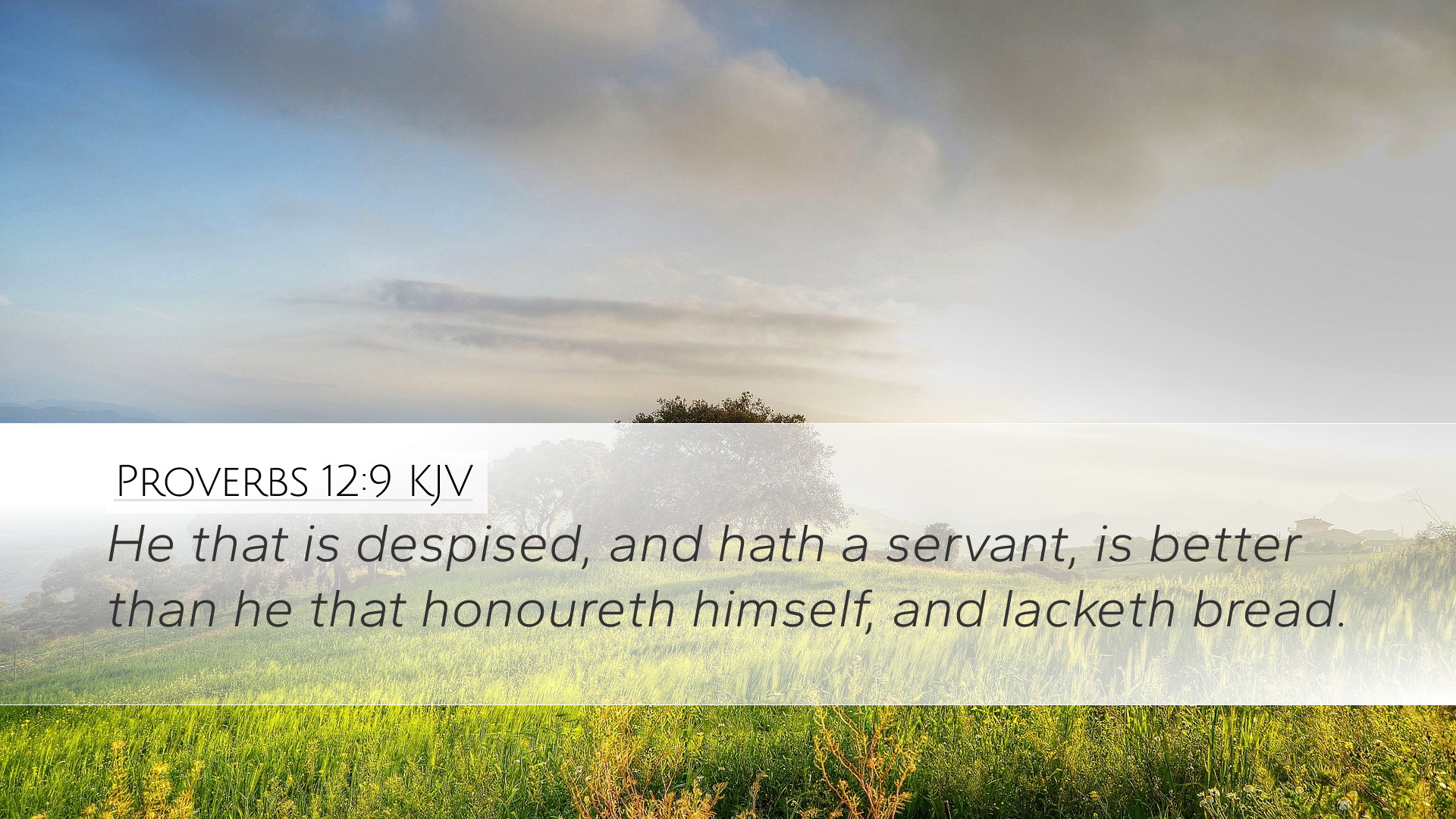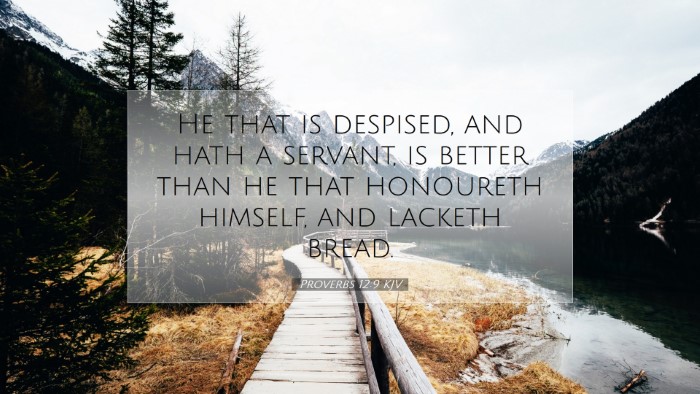Commentary on Proverbs 12:9
Verse Reference: Proverbs 12:9 - "Better is he that is despised, and hath a servant, than he that honoureth himself, and lacketh bread."
Introduction
The book of Proverbs is rich with practical wisdom, offering guidance on living a righteous and fulfilling life. In Proverbs 12:9, we are presented with a juxtaposition between social status and true worth. This verse, succinct yet profound, invites reflection on the nature of humility, dignity, and sustenance in the life of the believer.
Commentary Insights
1. Understanding Despisement
Matthew Henry comments on the term "despised," noting that it refers to a person who may be looked down upon by society. This indicates that one's social stature does not define their value in the eyes of God. The despised person may have qualities that are more substantive than those of the proud, and thus they possess a certain richness of spirit.
2. The Value of Serving
Albert Barnes emphasizes the significance of having a servant in this context. A servant represents not merely physical service but the relationship dynamics of support and community. The idea here is that even a man of lowly status who has someone to assist him has a better situation than one who is esteemed yet lacks the basic necessities of life.
3. The Folly of Self-Honor
Adam Clarke offers deep insight into the phrase "honoureth himself." It speaks to human tendencies toward pride and self-promotion. In contrast to genuine humility, self-honor can lead to deception. Clarke notes that such behavior ultimately leads to emptiness, as seen in a lack of bread—symbolizing not only physical sustenance but spiritual nourishment as well.
Thematic Breakdown
- Humility vs. Pride: The verse powerfully contrasts the humility of the despised with the pride of the self-honored. This sets a stage for exploring the virtues of meekness and the ultimate benefit of humility.
- Social Status: While society values certain traits and statuses over others, Proverbs reminds us that true worth is determined by character, not by status.
- Provision and Dependence: The presence of a servant indicates a lifestyle of support and provision. It illustrates how dependence on others can be a strength, highlighting interdependence within communities.
Application for Today
As we reflect on Proverbs 12:9, we can extract lessons applicable to our personal and communal lives:
- Self-Examination: Believers are called to reassess what defines success and honor in their lives. It is vital to evaluate one's values against God's standards rather than societal expectations.
- Embrace Humility: In ministry and service, humility is a requisite. Understanding that one's worth is found not in appearances or status but in the heart can lead to richer and more meaningful relationships.
- Community Support: In times of need, the support of others is invaluable. Believers are reminded to cultivate relationships that uplift and assist one another, further demonstrating the body of Christ in action.
Conclusion
In summary, Proverbs 12:9 succinctly encapsulates a potent message about the nature of worth. It reorients our understanding of dignity, encouraging a humility that seeks not the honor of man but the sustenance that comes from God. Pastors, students, and scholars alike must recognize the profound implications of this verse—challenging societal norms and uplifting the virtues of service, reliance, and true value in the kingdom of God.


